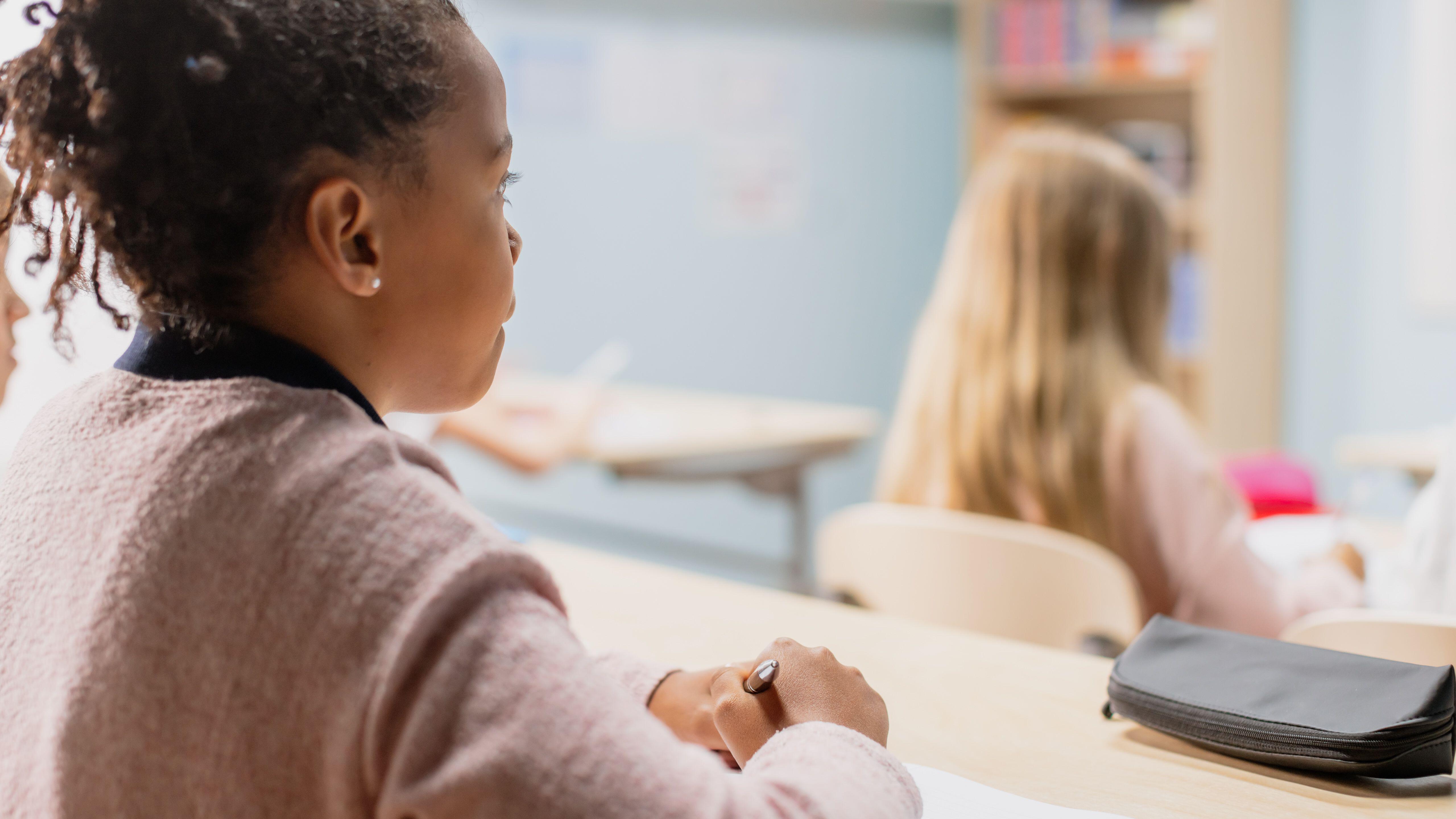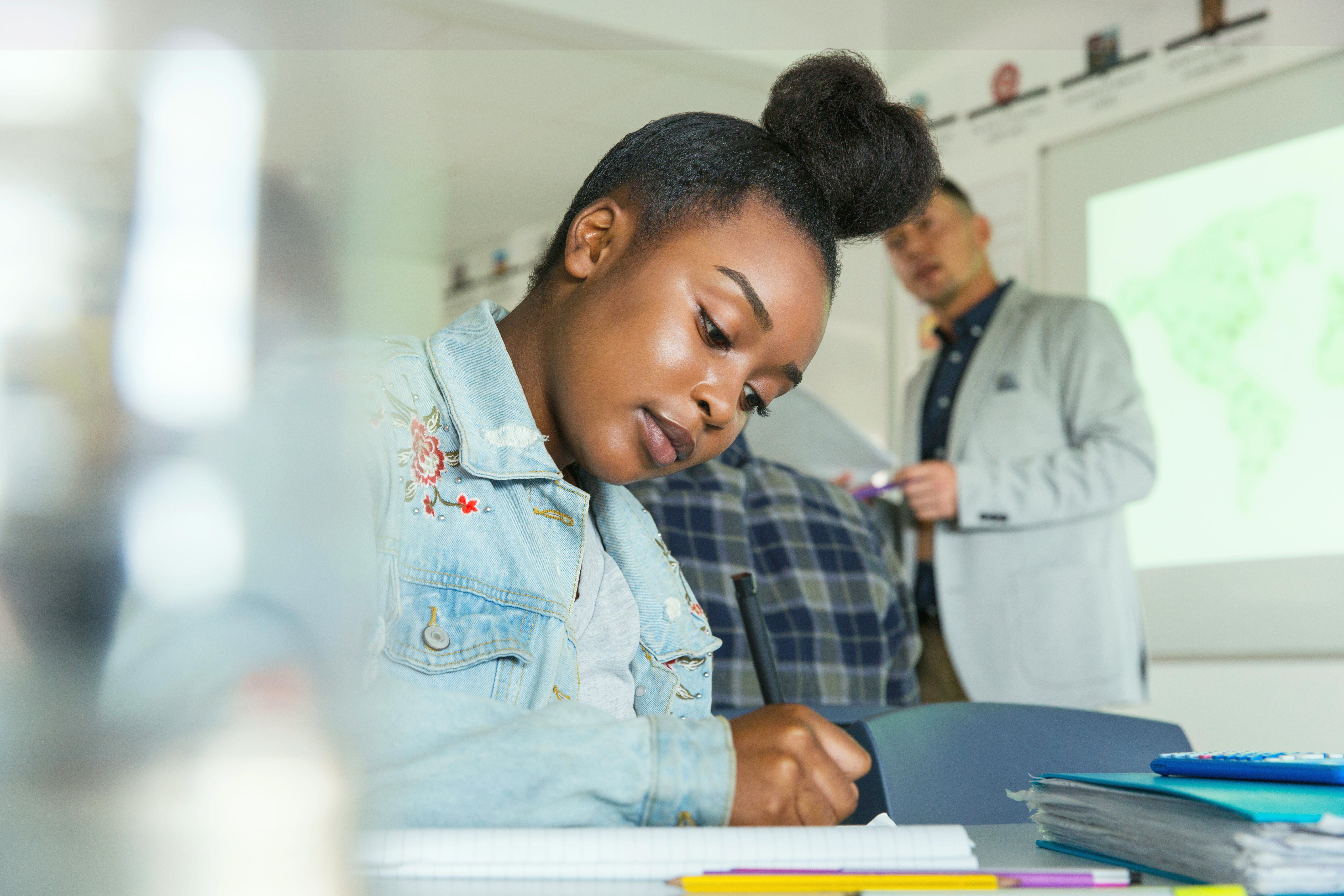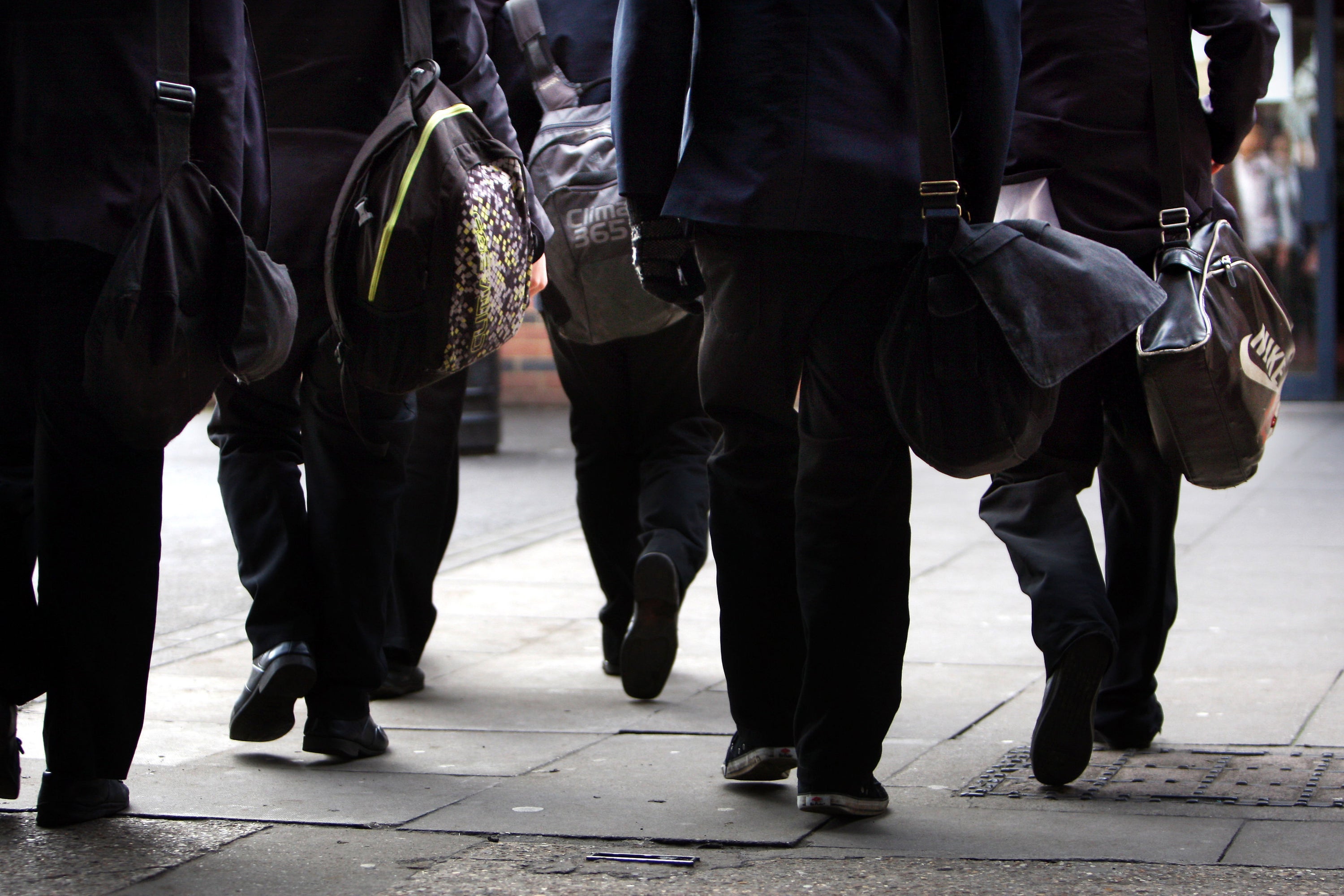‘Written off’: Black Caribbean schoolgirls’ exclusions triple in last year
“We only talk about Black girls when there’s a moral panic,” a charity director said. “Now it’s exclusions: only God knows what it’s going to be in the next few months.”

Your support helps us to tell the story
From reproductive rights to climate change to Big Tech, The Independent is on the ground when the story is developing. Whether it's investigating the financials of Elon Musk's pro-Trump PAC or producing our latest documentary, 'The A Word', which shines a light on the American women fighting for reproductive rights, we know how important it is to parse out the facts from the messaging.
At such a critical moment in US history, we need reporters on the ground. Your donation allows us to keep sending journalists to speak to both sides of the story.
The Independent is trusted by Americans across the entire political spectrum. And unlike many other quality news outlets, we choose not to lock Americans out of our reporting and analysis with paywalls. We believe quality journalism should be available to everyone, paid for by those who can afford it.
Your support makes all the difference.The rate of Black Caribbean girls being kicked out of schools has tripled within the past year, official figures have revealed.
The damning data also showed that in the academic year 2021-22, this group was excluded at double the rate of white British girls, while girls from Traveller backgrounds also experienced worse school outcomes.
The exclusion rates among Gypsy schoolgirls was three times higher during the same period, while the rate among mixed white and Black Caribbean girls was also double that of white British girls, according to Freedom of Information (FOI) figures from the Department for Education (DfE).
Moreover, rates of exclusion have doubled among Traveller and Gypsy schoolgirls, the data highlights.
The FOI request was submitted to the Department of Education by Agenda Alliance, a group comprised of over 120 charities and frontline organisations.
Campaigners say these disparities are a combination of factors including discipline policies disproportionately impacting girls from ethnic minority backgrounds, while charities urge the government to intervene.

Indy Cross, Chief Executive of Agenda Alliance, said: “These are extremely worrying findings. We at Agenda Alliance are calling for a zero tolerance to harmful behaviour policies which blight girls’ futures.
“We know schools do a tough job and that teachers are hard-pressed. But by the government’s own measure, girls at the sharpest end of disadvantage are being set up to fail.
“Racial and gender stereotypes have no place in today’s education for young women. Enough is enough. No more excuses that poverty also inevitably jeopardises education. We can – and must - do better than this.”
Exclusions have also disproportionately affected Gypsy and Roma schoolgirls, who have been consistently excluded at a considerably higher rate than white British girls over the past four years (2018 – 2022).
Rates of suspension - temporary exclusions - are also considerably higher among all ethnic minority groups too, this analysis has highlighted.
Ebinehita Iyere, Founder & Managing Director of Milk Honey Bees, which supports excluded Black and mixed Black girls at risk of exclusion, told The Independent that these upward trends are unsurprising.

“These numbers increasing because there has not been enough focus on Black girls’ experiences within schools,” she said. “It’s long been dismissed and what is happening now is it’s coming to the surface. Therefore, the work has not been done to prevent things from worsening.
“Historically, a lot of focus has been placed upon Black boys’ experiences within school with less focus on their counterparts: Black girls. The same type of support is not invested in this group.
“I’m not surprised the numbers are so high because of these reasons and more. In my experience as a practitioner, racial biases are also applied resulting in harsher punishment for things such as uniform or lateness.”
Moreover, schools often fail to understand the emotional needs of Black/mixed Black girls which, in turn, leads to behaviour not being viewed as a flag for potential undiagnosed issues or difficult experiences outside of school, Ms Iyere added.
“We only talk about Black girls when there’s a moral panic. Now it’s exclusions: only God knows what it’s going to be in the next few months.”

Echoing this point, Pauline Anderson OBE, Chair of Trustees with the Traveller Movement, said: “We see again and again through our casework the link between racist bullying and school exclusions.
“Too often, Romani (Gypsy), Roma, and Irish Traveller children who are experiencing bullying in schools resort to retaliation as schools do not stand up for them, resulting in exclusion.”
This news comes as exclusions generally have risen beyond pre-pandemic levels and shortly after the government launched a crackdown on unauthorised absences from school which is often punishable with exclusions and suspensions.
“The impact of Covid often isn’t discussed: a lot of Black girls were the main caregivers in their homes because their parents were frontline workers, while feeling invisible in their home and at home,” Ms Iyeye, who’s calling for a government inquiry into this matter, said.
“As an organisation, we are calling for support from policymakers, schools, funders and our wider community to understand and foster positive relationships between teachers and Black girls to stop them being marginalised by the education system. Only a joined-up therapeutic approach will work.”

“Black girls are being written off, erased and ignored. Not just within schools but across society.”
Michael Buraimoh, CEO of Race on the Agenda, said: “We are concerned that the government’s determination to improve school attendance and reduce absenteeism could backfire on girls who most need support in schools and colleges.
“According to the government’s own research, a student who has been suspended is more likely to refuse to go to school once they’re allowed back. There is a real danger a crackdown on absenteeism, if not implemented appropriately will punish girls from minority backgrounds.”
A Department for Education spokesperson told The Independent: “Schools cannot discriminate against pupils on the basis of their race under any circumstances. We back heads to use suspensions and permanent exclusions where required for behaviour management, so they can provide calm, safe, supportive environments.”
Join our commenting forum
Join thought-provoking conversations, follow other Independent readers and see their replies
Comments